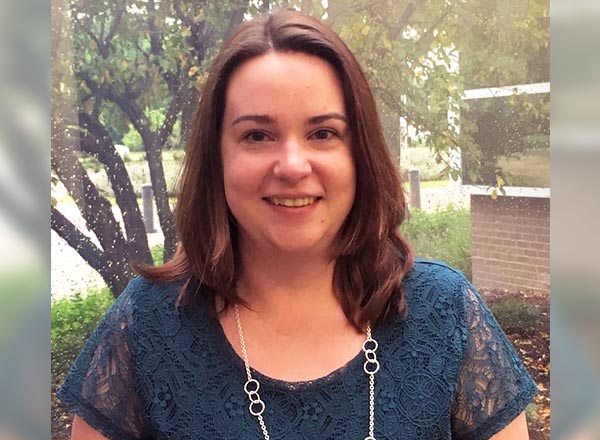Get to Know HFC: Rachel Ford

This story is one in a series about HFC employees. If you would like to nominate yourself or a colleague to be featured in this series, email communications@hfcc.edu with the person's name and a short statement about why you are nominating them.
It is a tremendous challenge to work in a field that is constantly changing. That is the nature of accessibility, says HFC Web Accessibility Manager Rachel Ford.
“We have to learn new techniques frequently. We also have to deal with culture change. Part of my role is asking people to change how they think about creating documents or the software they use. Many of us have been creating documents the same way for many years. It's hard to suddenly change how we think about our work. Accessibility is all about improvement, and every step helps,” explained Ford.
Ford is responsible for evaluating the accessibility compliance of all College technology. She reviews all technologies used or purchased by the College, including software, the website, and various kinds of documents. She also trains staff on accessibility requirements and best practices. Ford, who has been at the College for three years, reports to Al Burrell, director of Information Technology Services/Data and Voice Communications.
Realizing the impact a community college has on students’ lives
Like many students right out of high school, Ford wasn’t sure what field she wanted to go into. So it made sense for her to enroll at Schoolcraft College in Livonia after graduating from Churchill High School.
Ford earned her associate degree in science from Schoolcraft. She transferred to Davenport University, where she earned her bachelor’s degree in business and computer information systems. She went on to earn her master’s degree in educational technology from Central Michigan University.
For Ford, attending community college was a good choice before pursuing her other degrees.
“Working and taking classes at Schoolcraft gave me a passion for the impact that we can have on students’ lives, the way that institutions of this size have the ability be very personable rather than cold and formal,” she said.
Improving the way all people receive information
At Schoolcraft, Ford realized she had an aptitude for technology. Because technology is constantly changing and she loves learning new things, a career in technology was a natural fit. She worked for Schoolcraft in instructional operations and distance learning for more than 15 years before coming to HFC. The connection to accessibility actually came through professional development while she worked in distance learning at Schoolcraft, in an effort to improve the online courses being developed.
“Like so many people who are new to accessibility, I found it overwhelming at first. There was just so much to know and keep straight! For me, the key was finding the connections between accessibility, student success, and universal design. For example, seeing the way that adjusting the flow of a document or the activities in a course -- which were meant to help one person -- could help improve the way all people receive information. That realization brought with it a real enthusiasm for the impact that accessible products and services can have – for those at the institution and the community. I quickly became the go-to person in distance learning for accessibility issues. I really loved the work, which led me to wanting to focus on accessibility full-time,” she explained.
Accessibility training seminars offered Tuesday mornings
Currently, Ford offers live virtual accessibility training at 9:00 a.m. on Tuesdays.
“This is an open time when staff can come with questions, documents they’re working on, etc., and we can work through whatever issues they’re having together,” she said. “If you would like to just sit in and listen, that’s okay too. Accessibility is all about improvement, and every step helps.”
For questions and/or more information about accessibility training, email Rachel Ford.